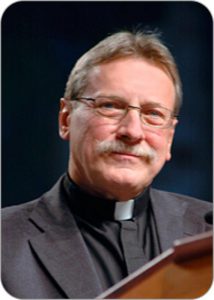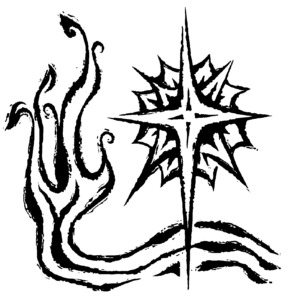
FROM THE PASTOR
Nature of Epiphany
“As with gladness men of old
Did the guiding star behold
As with joy they hailed its light,Leading onward, beaming bright
So, most gracious Lord, may we
Ever more be led by thee.As with joyful steps they sped,
Savior to thy lowly bed,
There to bend the knee before
Thee, whom heav’n and earth adore;So, may we with willing feet
Ever seek thy mercy seat.” (LBW, 82)
I would like to reflect with you on the nature of Epiphany and the ministry we share at Saint Luke, especially as we find the mission field not somewhere else, but right outside our doors.
Context: In Matthew 2 we are given the story of three seekers on a spiritual journey. Outside our doors we are confronted with societal spiritual hunger as intense as it has ever been. They “bend the knee” here and there. In the mission field outside our door the American ethos is not secular, but personal. People are seeking answers to the anxiety of our time. Successful churches understand the holes in people’s lives and fill them. The American magi are pragmatic, personal. There is no natural fit between the complexities of Lutheran theology and popular American thought. How do we translate these complexities and chisel out space for justification by grace, high Christology, law\gospel tension? We are a church somewhere between an immigrant clan and the American experience.
All Americans want help in living their lives, and religion has become one of those tools. Today’s magi seek Christ, the friend in trouble, not Christ crucified. In a church caught between the memory of our immigrant ancestors, new immigrants, and the American culture outside our doors, how do we hear and enact the Epiphany story?
This year that context has been global pandemic. The spiritual hunger is deepened with a long season of quarantine, of being unable to assemble to worship, to sing, to pray communally. Pandemic has deepened our questions about life and mortality, about the common good, about where we find God in all of it.
The Journey of the Magi: Martin Luther devoted forty pages to reflecting on the Epiphany because it was such a profound version of a theology of the cross. In the story of the magi we notice how deceiving appearances can be. The place to bend the knee is not Jerusalem, but Bethlehem; not before Herod but a mother holding a vulnerable child; not before wealth, but poverty; not before power, but weakness. We are reminded how we can be stuck on the superficial and miss the less obvious truth.
We notice the confusion between religious and political realms. The magi seek the Messiah king in Jerusalem. They go to King Herod. The court theologians don’t have the answers, they have to look it up…Micah…Bethlehem…bingo! Where is God to be found? Not in Herod’s palace.
We notice how the Good News becomes a threat to power and an occasion for violence. Herod is so upset and insecure that the journey of the magi set up the slaughter of the innocents. We ponder the possibility that if we are successful in mission that forces opposed to God will be stirred up. The work we have done over the years as a church in welcoming immigrants and resettling refugees is actively resisted in our present culture.

We notice, with gratitude, that this story is Gospel. The journey of the magi is fulfilled in the end. They are “overwhelmed with joy.” In the mission field outside our doors many magi have not yet arrived at the end of the journey to say “Yes, I have found it!” Karl Rahner illumines this restlessness: “everyone is created for grace.” The magi’s pilgrimage represents the right end to the journey for all of us. Our society is filled with unfulfilled souls because the journeys are wandering around and confused. Luther’s key theological epiphany in the spring of 1518 is still relevant today: righteousness is first God’s gift in Christ.
The true epiphany journey leads to a theology of the cross. A theology of the cross is a clue to how God acts in the world and is revealed. If God is supremely revealed in the failure of the cross, then all our notions have been re-cast. The cross is the key to the hidden and surprising ways of God. A theology of the cross helps us to not get stuck at the level of the obvious, but gives us the vision to see the Spirit stirring something up in the most unlikely places. Places where we work and worship from home and await the results of the COVID test. Places where jobs are lost, fear hovers, and the graceless public square looms just outside our doors.
We are magi. If we are seekers then we can model this for others. As magi we can confront missional opportunities without anxiety. Can our parish again be “touched by the star?” If we are magi, going ever more deeply into the mysteries of faith, then we can help affirm all folks as born seekers. We can treat their quests with respect. They are made for God. We can look beneath the surface.
As part of a Lutheran church body, the ELCA, committed to ministry with people in poverty we can also not condescend to the body. The poor have a need for God as do the wealthy and the middle class. We must share not just food, but the bread of life as well. Remember Herod and the magi. We must be shrewd about power and violence and their relationship to outreach ministry. Ponder the enormous hatred (often disguised as indifference) of the poor and the immigrant. The mission field outside our door supports a society in which one third of its children are poor and hungry.
As magi we are theologians of the cross. We celebrate how God is present with us in surprising ways, sometimes in apparent failure, when we are most vulnerable. At the foot of the cross we are all embraced with eternal grace and love. As magi let us not be overly impressed with obvious signs of success. The cross is always prodding us to ask, “what are the meaning of these things?”
As magi, let us be willing to “bend the knee” when the star leads us to the right place. We must continually be surprised by joy, overwhelmed by grace. Faith is contagious. In the hymn the “they” became “we.” “As with gladness men of old…so may we.”
Stephen Paul Bouman
Epiphany 2022

